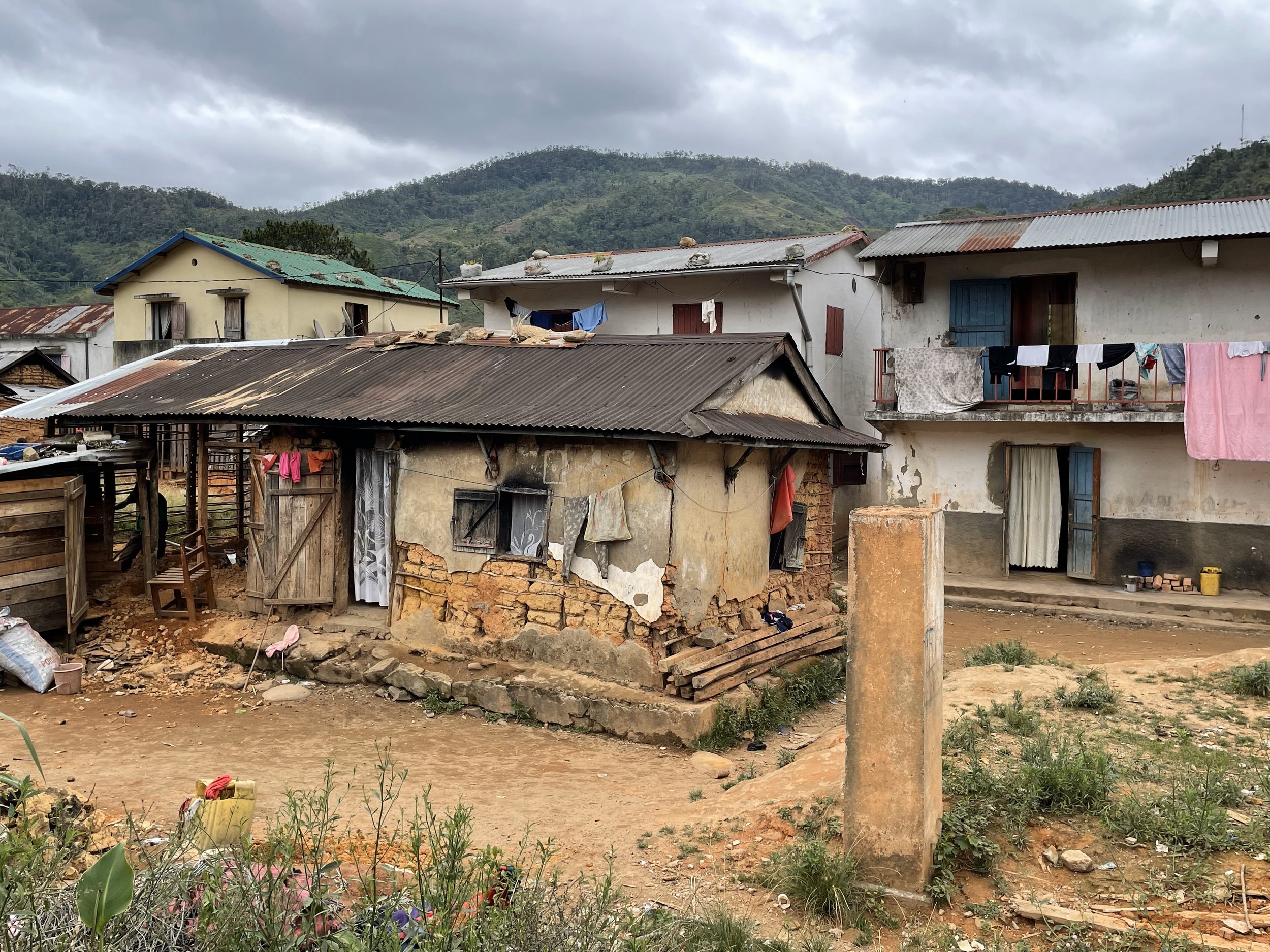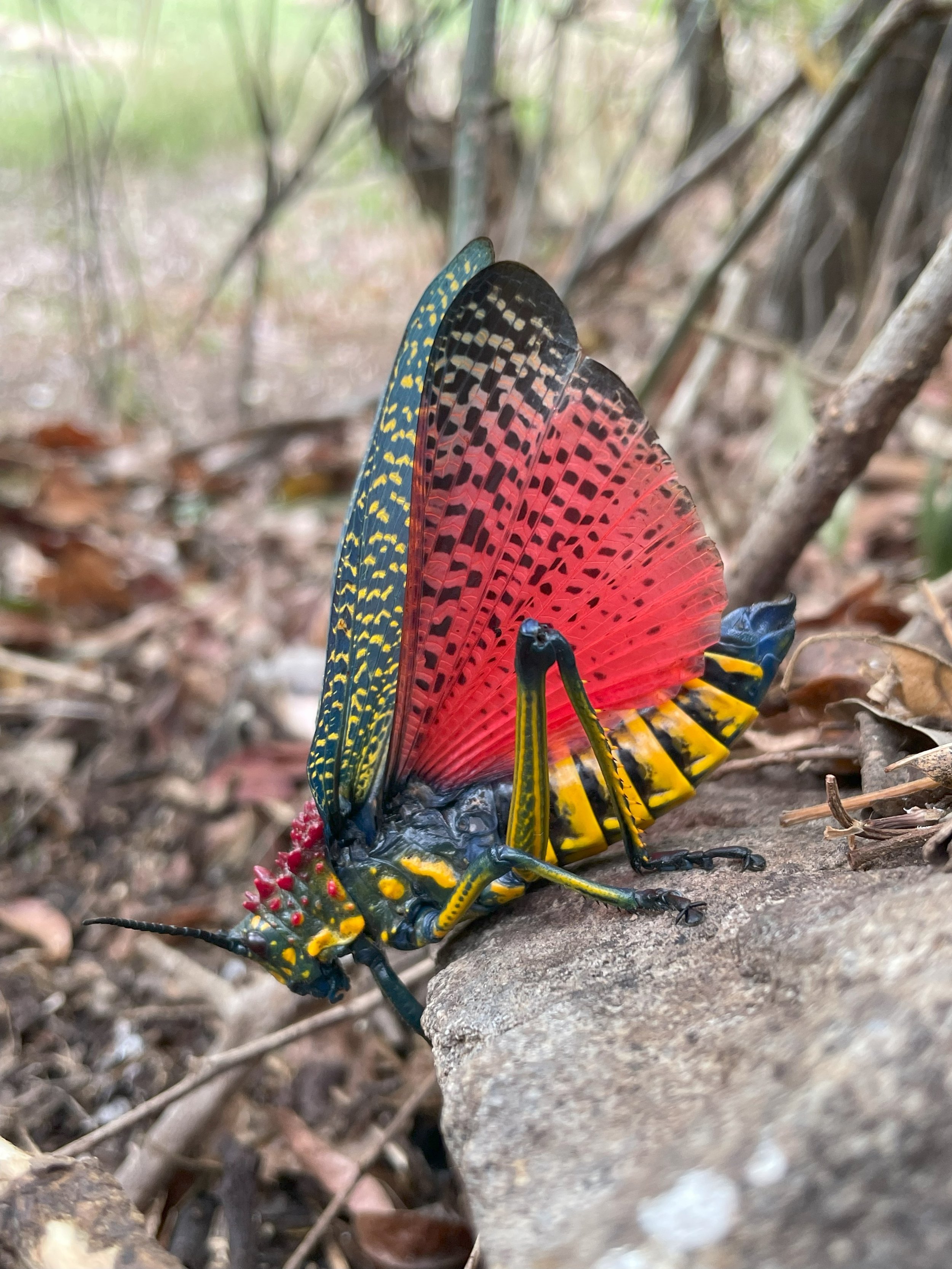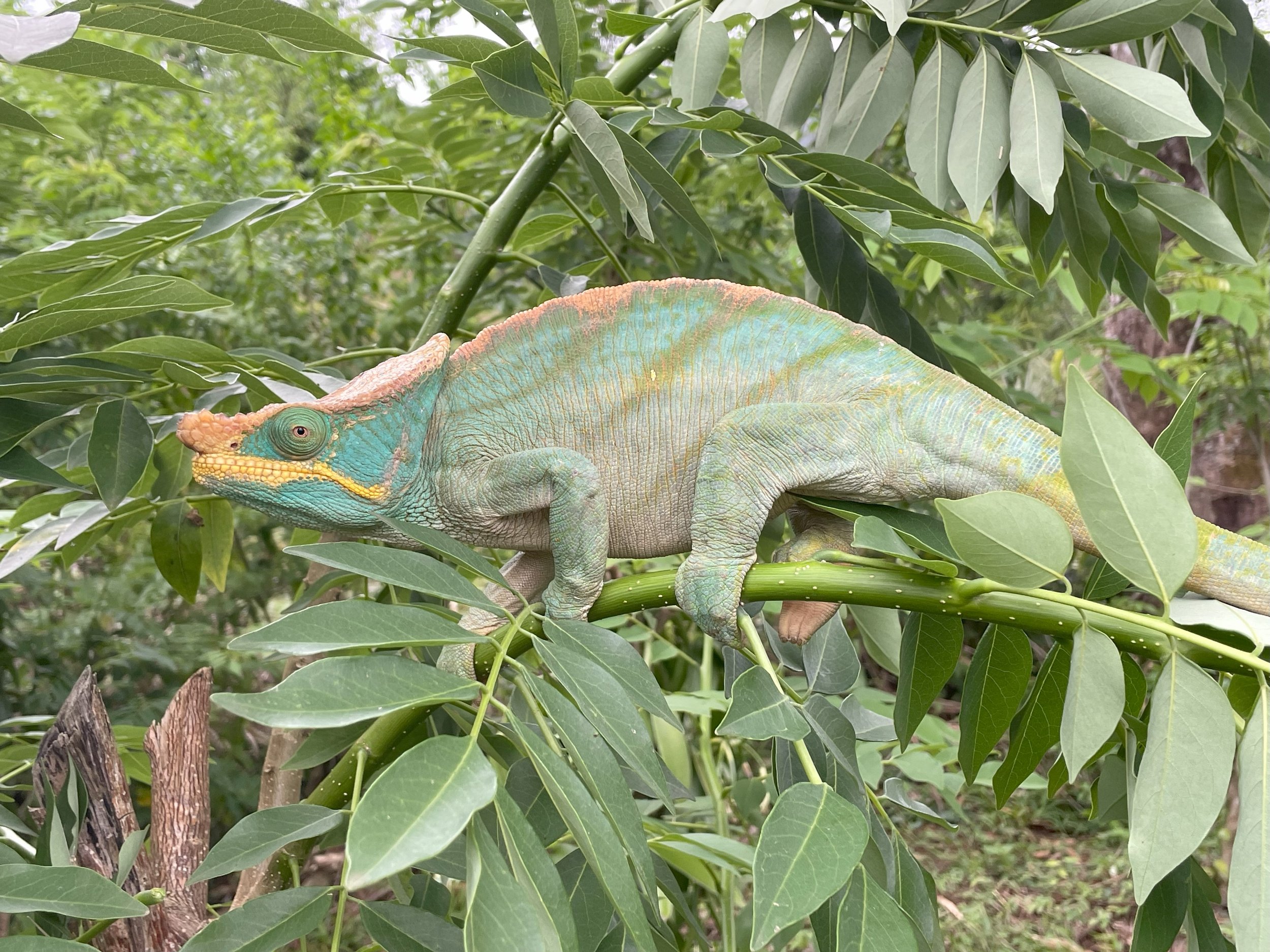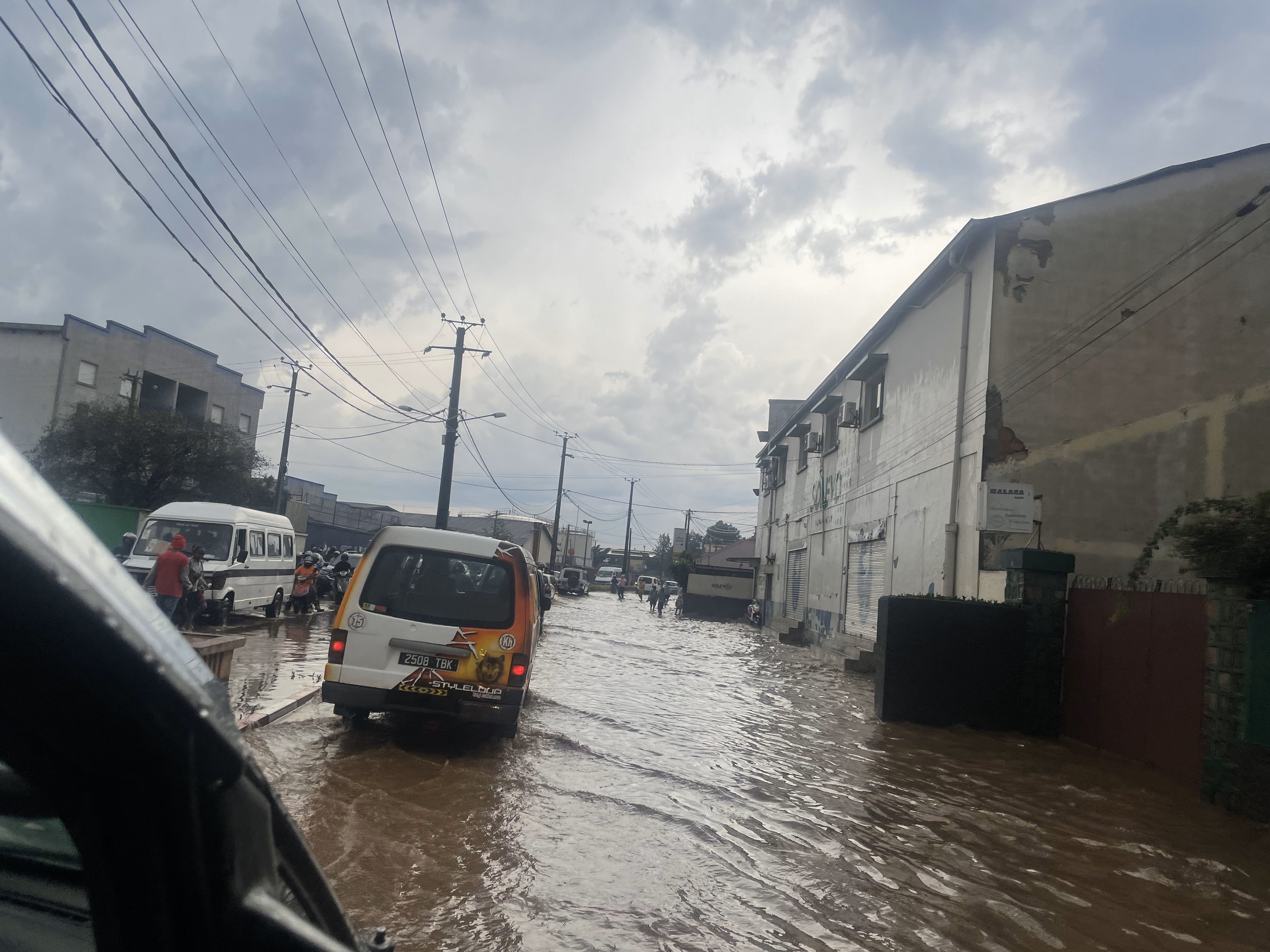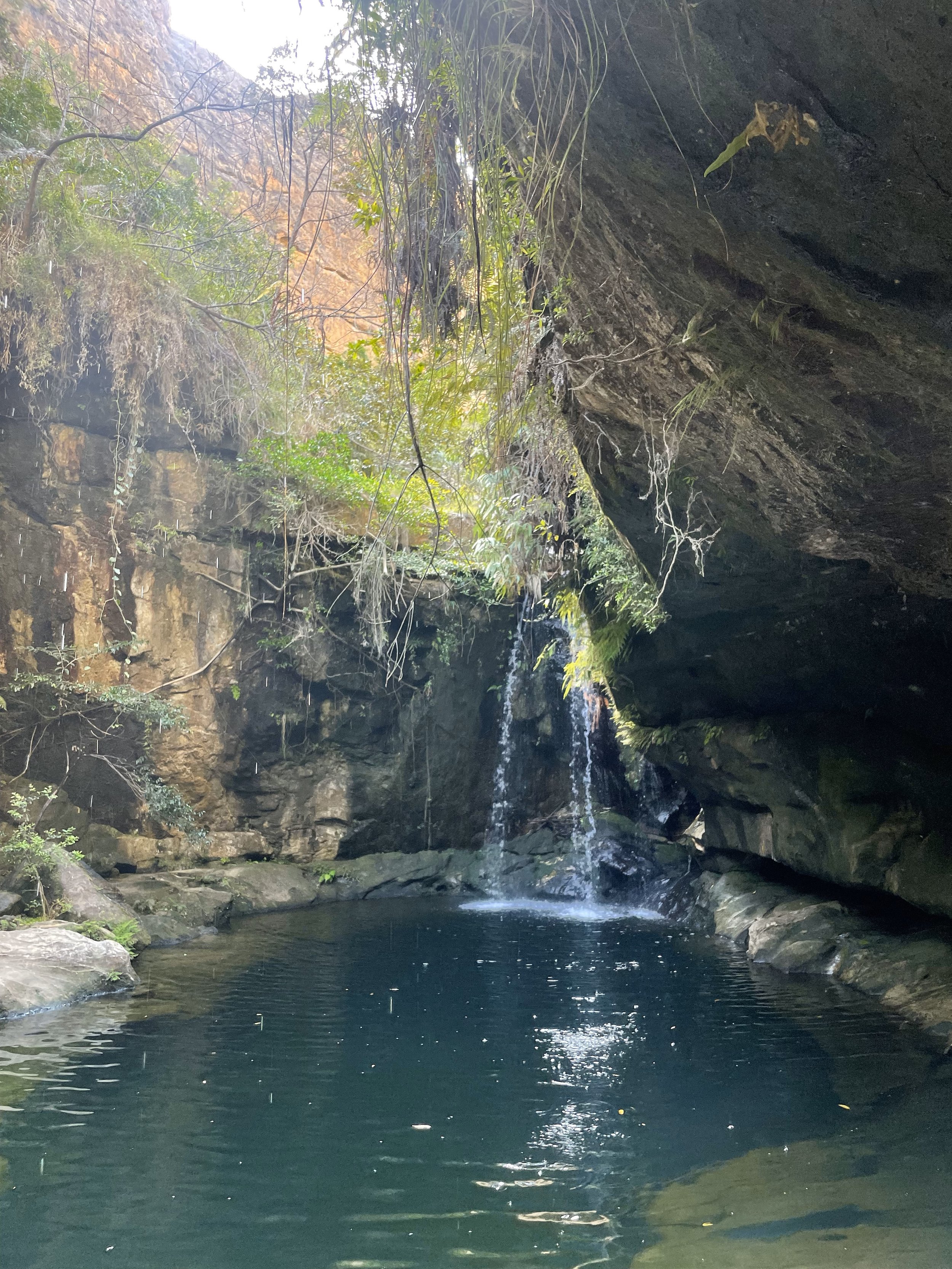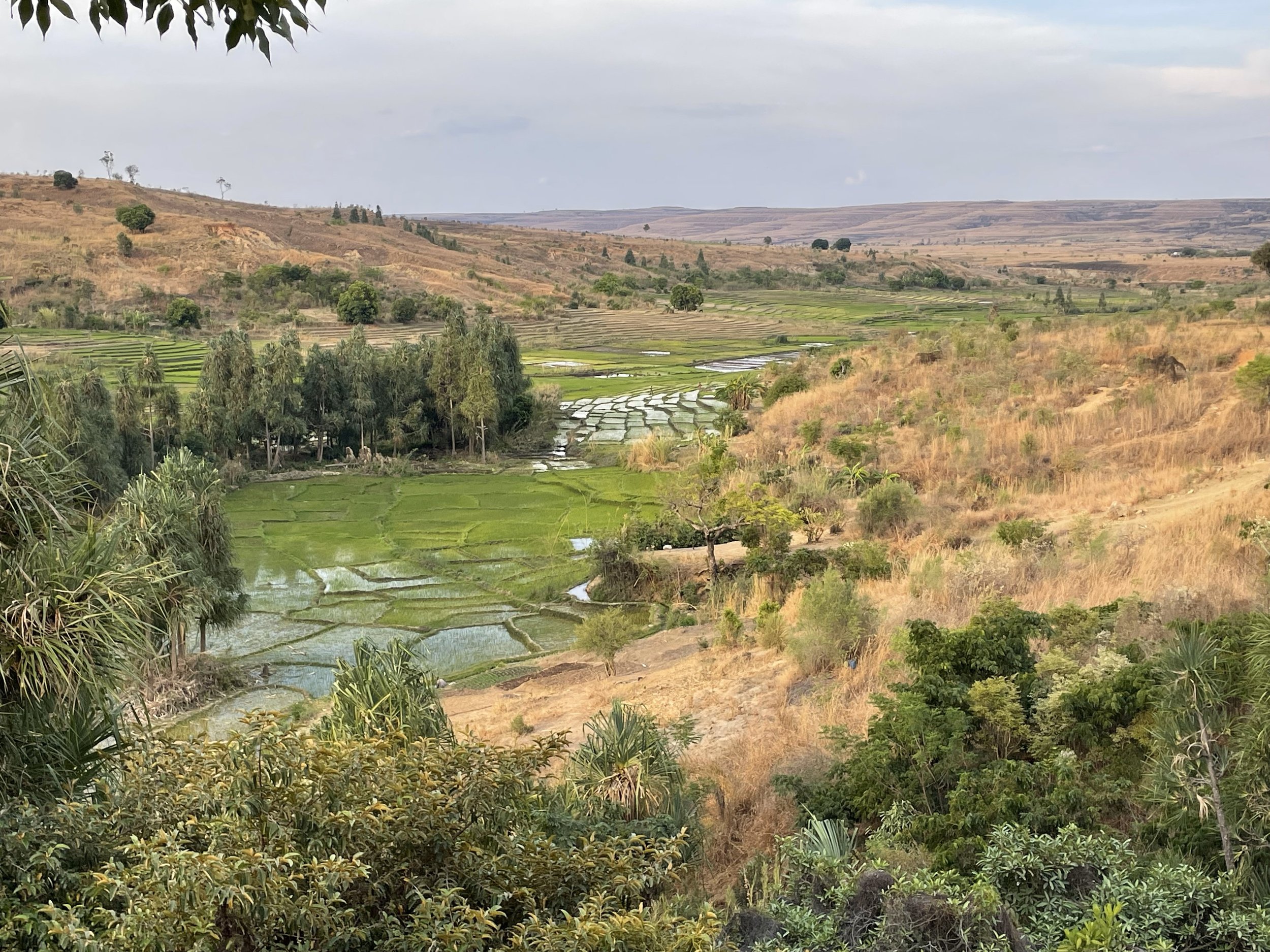
Combine the extremes, and you will have the true center.
~ Karl Wilhelm Diefenbach
madagascar
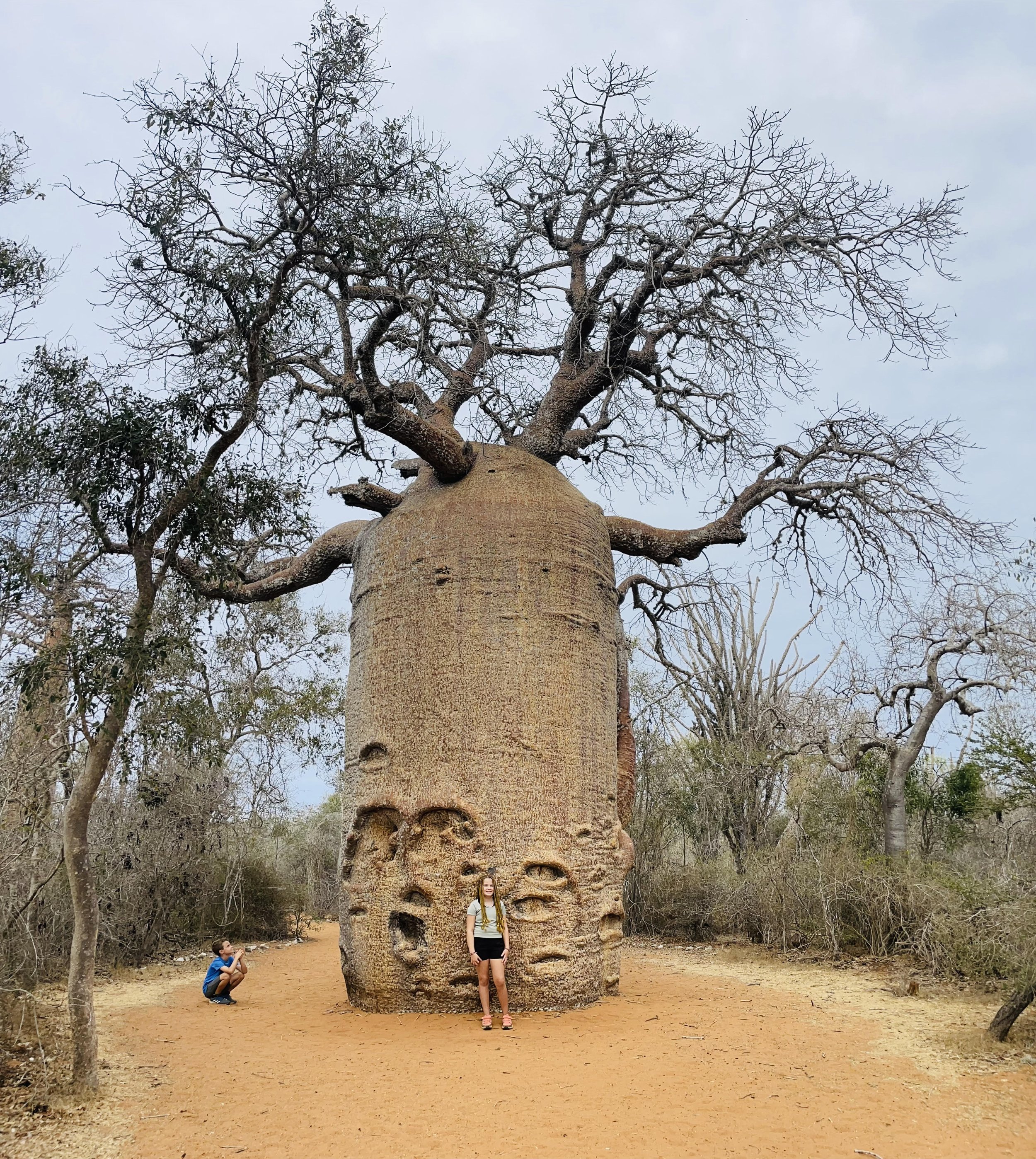
MADAGASCAR
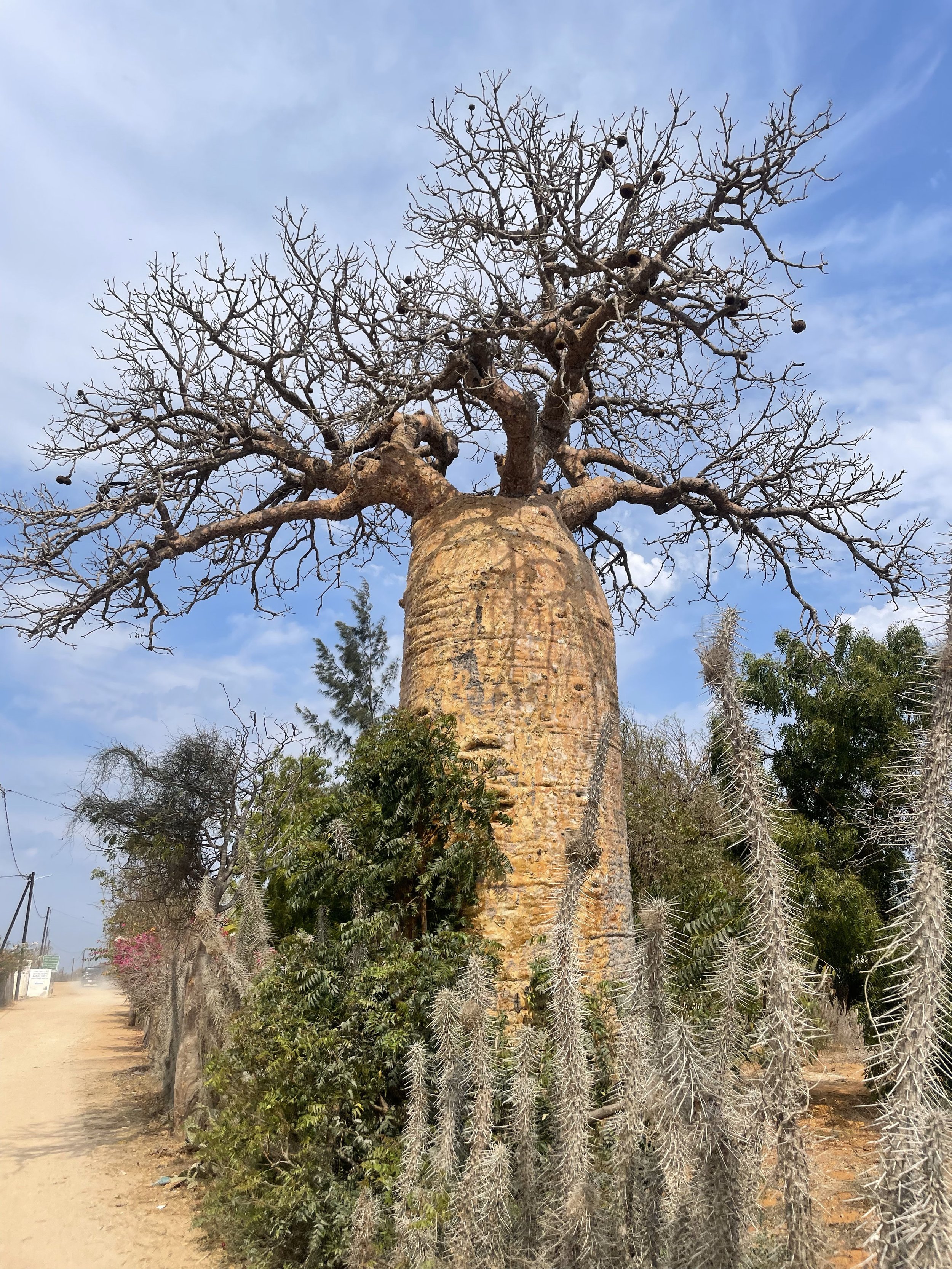
The iconic and ancient baobab embodies the complexity and resilence of this unique place. Madagascar left us awestruck by the beauty of the natural world and it's fragility in human hands, particularly hands toiling for a basic existance amdist extreme poverty and political instability.

We spent the first few days at the Reniala Lemur Rescue Center near Toliara in Southern Madagascar. We prepared food twice a day and delivered it to enclosures where lemurs progressed through stages of rehabilitation before eventually being released. CLICK PIC FOR LINK

Dr. Grace even got to perform wound care with the local vet!
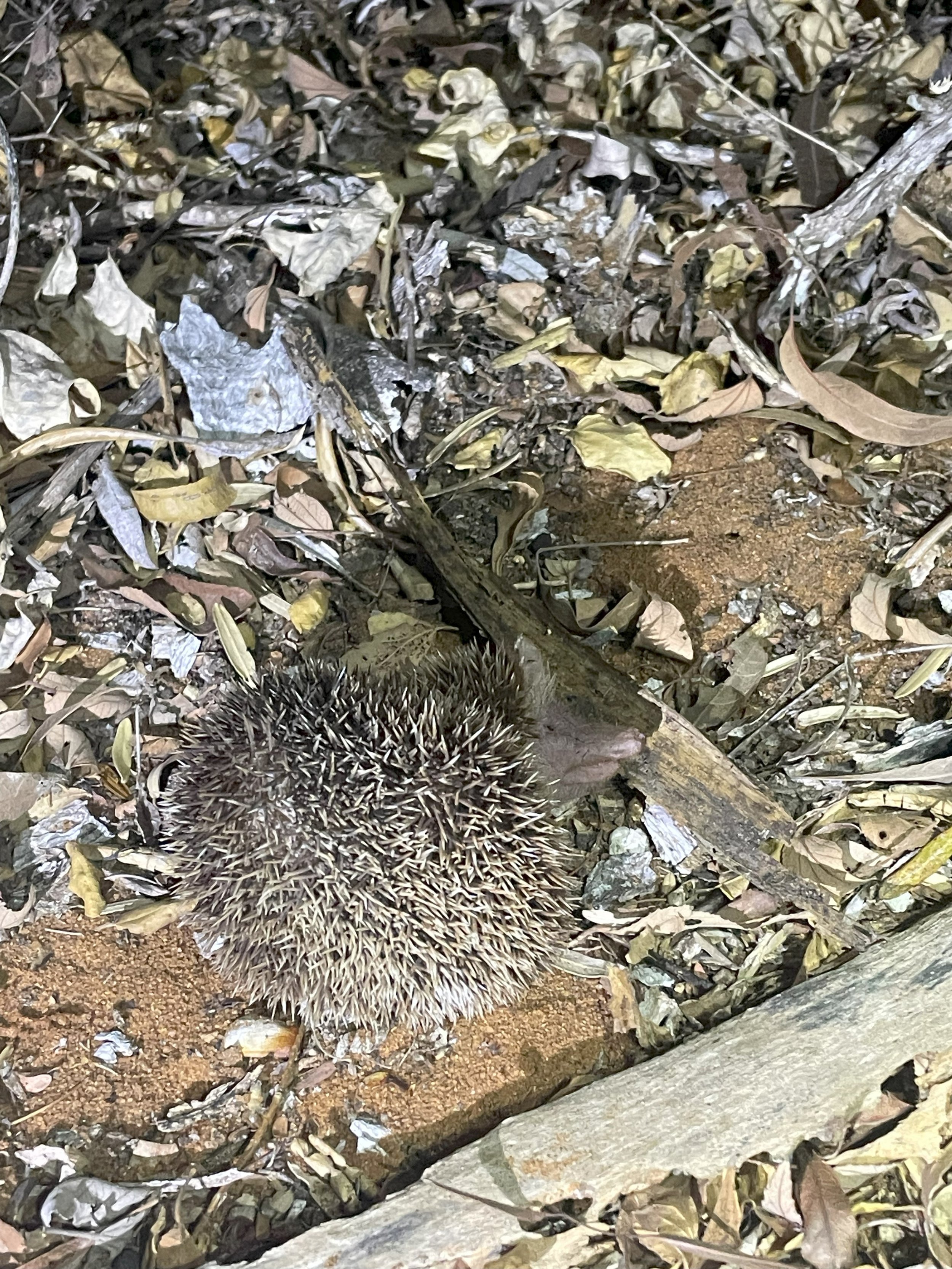
During a night walk, we came upon this incredibly adorable little creature known as the Tenrec which is endemic to Madagascar.

William befriended the local kids through the universal language of football (aka soccer).
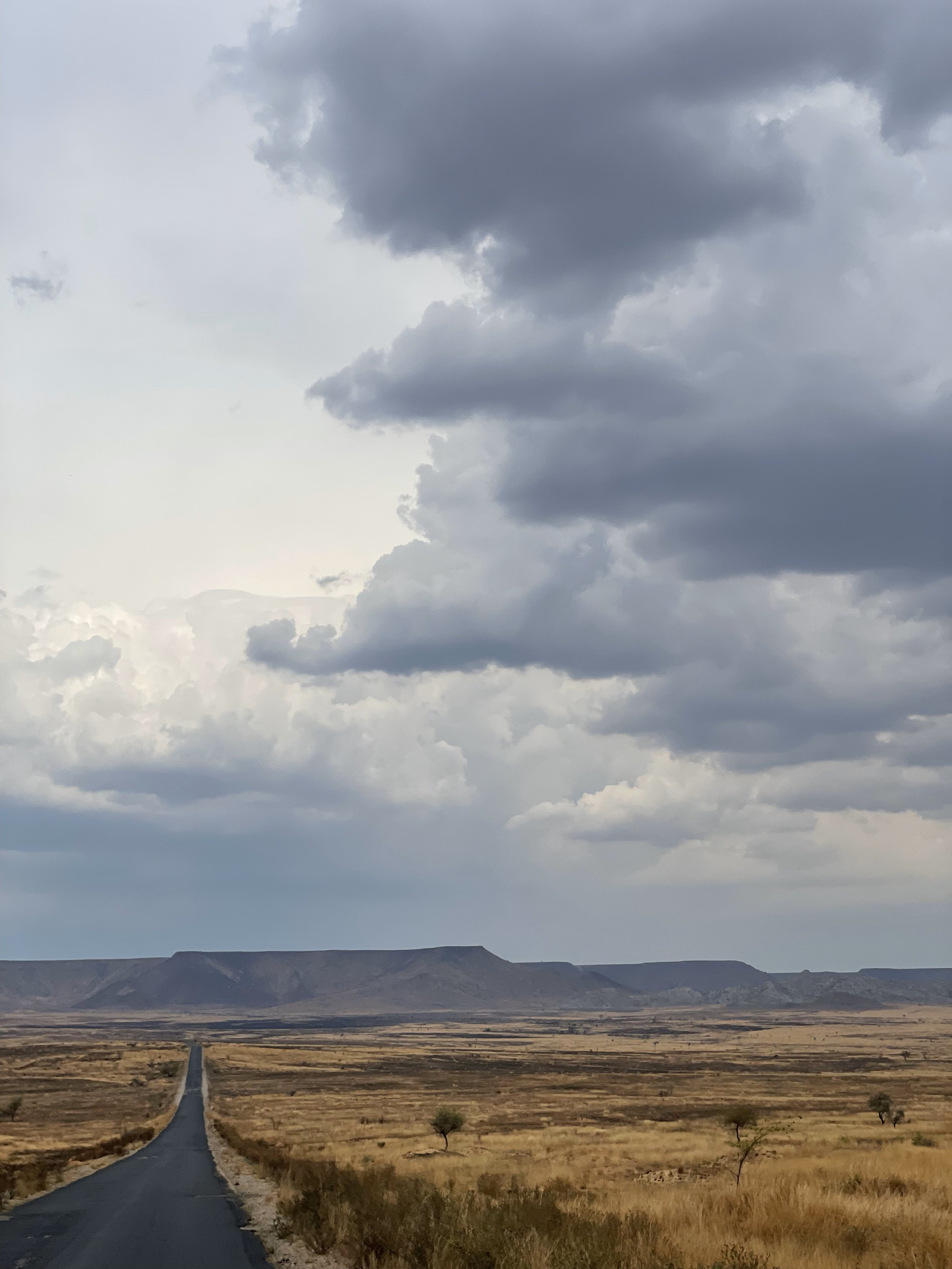
After the rescue center, we began a week of travel across the country stopping at several national parks and reserves. This was when the intensity and completeness of deforestation really began to sink in. We drove through miles and miles of desert-like landscapes where lush forests once grew. This process is due to a mix of extractive industries combined with the ever-present practice of burning the land for agricultre and to stimulate grass growth for Zebu (the local "cow"). The result is an apocalyptic landscape of brown earth covered in ashes. Each national park stood out as a stark reminder of the biodiversity that has disappeared.
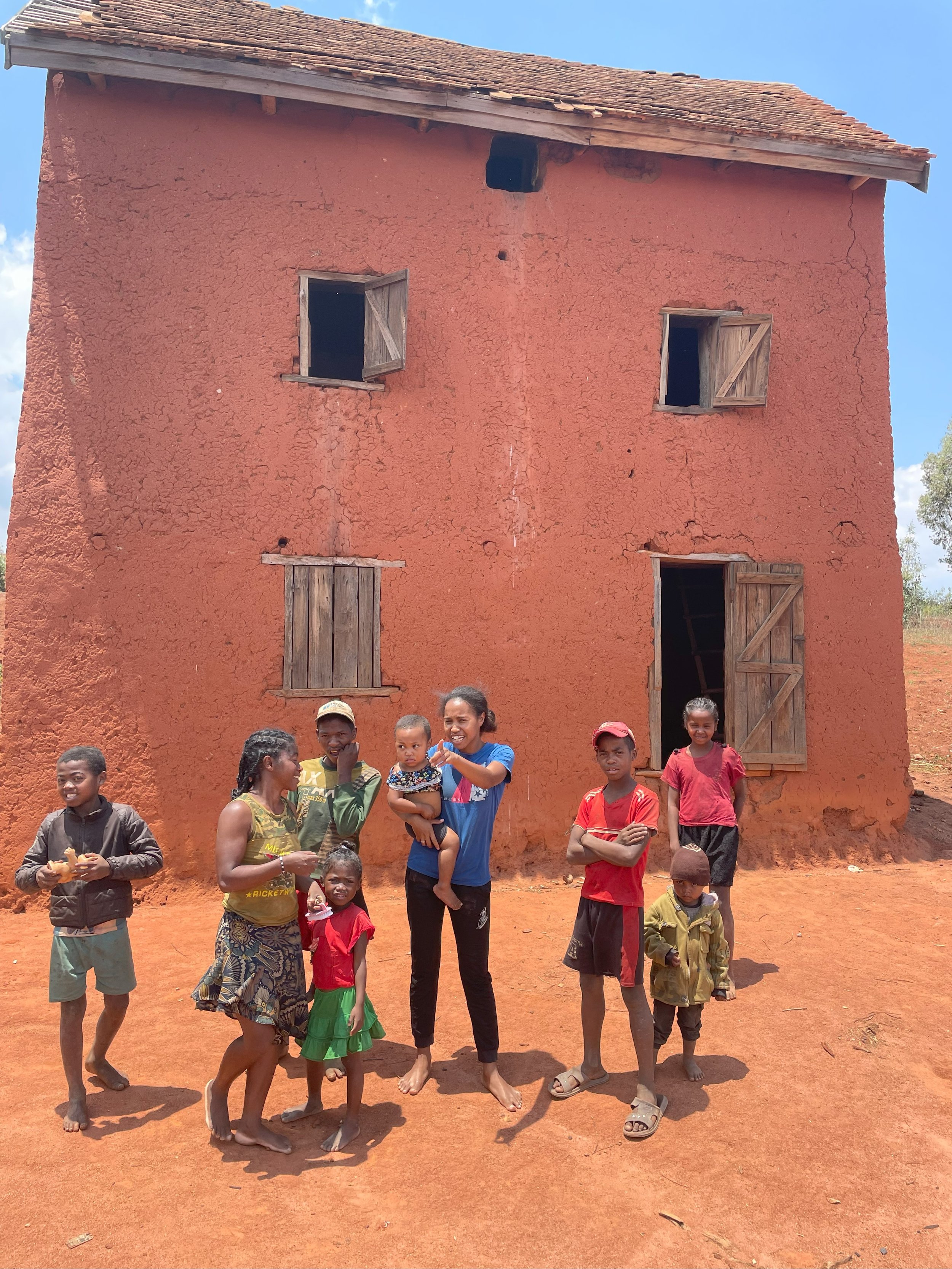
Amidst this harsh landscape, the resilent and diverse Malagasy people live out their lives with ever-present smiles. Unfortunately, it is an uphill battle, as poverty rates in Madagascar are among the highest in the world due unstable leadership and inadequate structural resources.
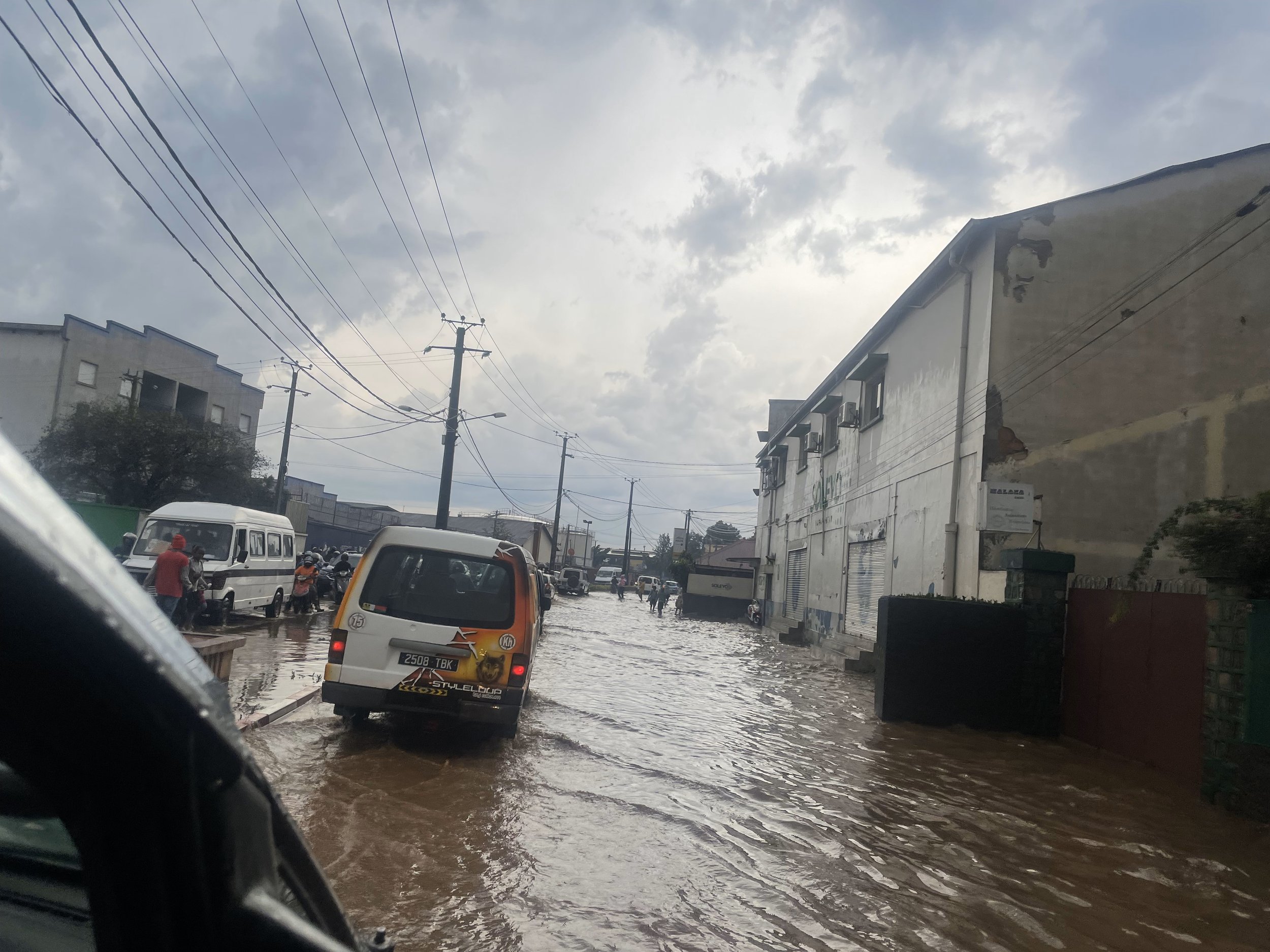
Monsoon storms in the capital Antananarivo bring quick flooding and slow traffic to a crawl.
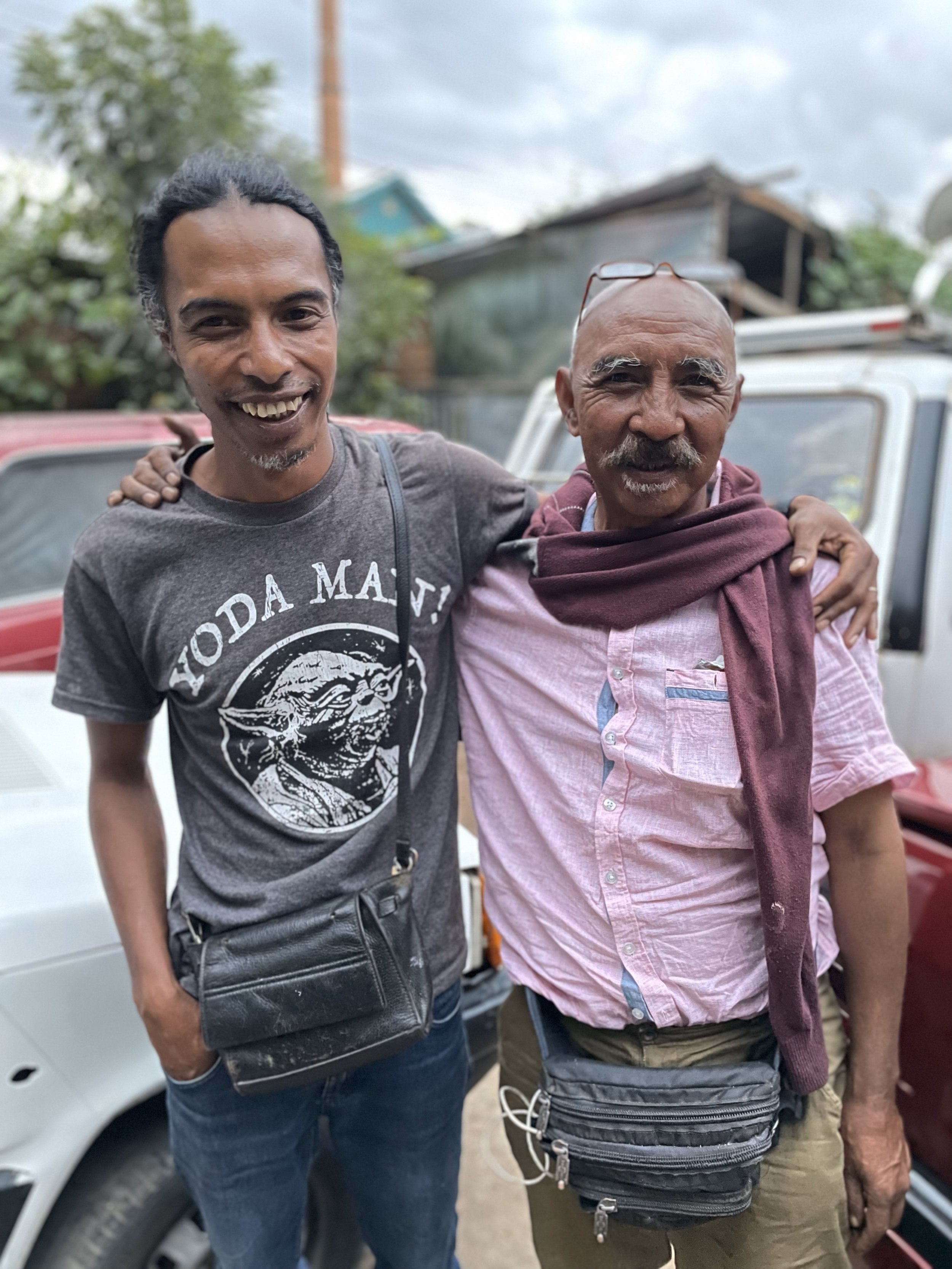
Our amazing guide Nico invited us to his home in Antsirabe where we got to meet his father who has a created a thriving business making cheese and yogurt in the ground floor of their home.
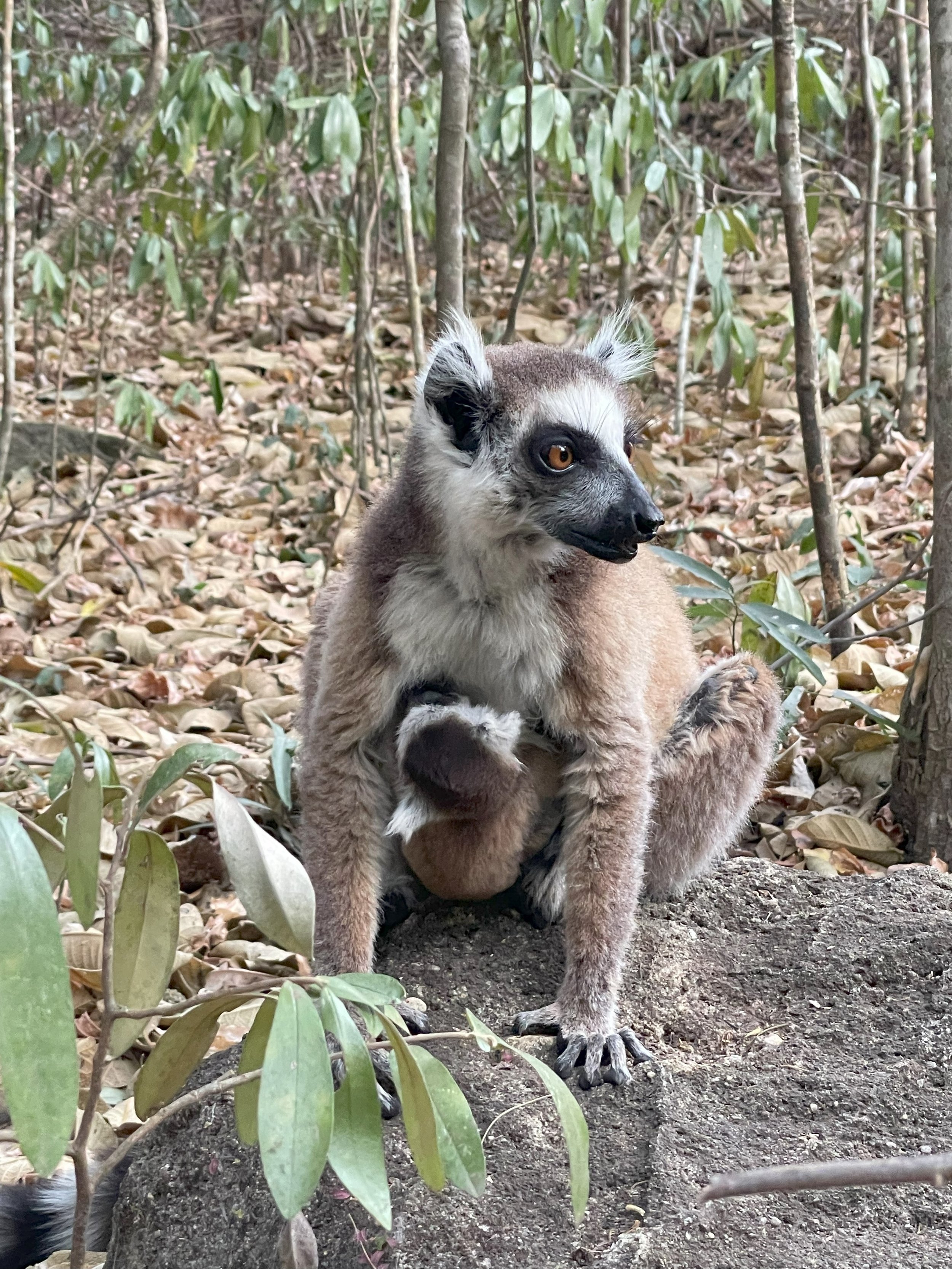
Reniala houses the Ring-Tailed Lemur. We asked to meet King Julian but we're not granted a royal audience.
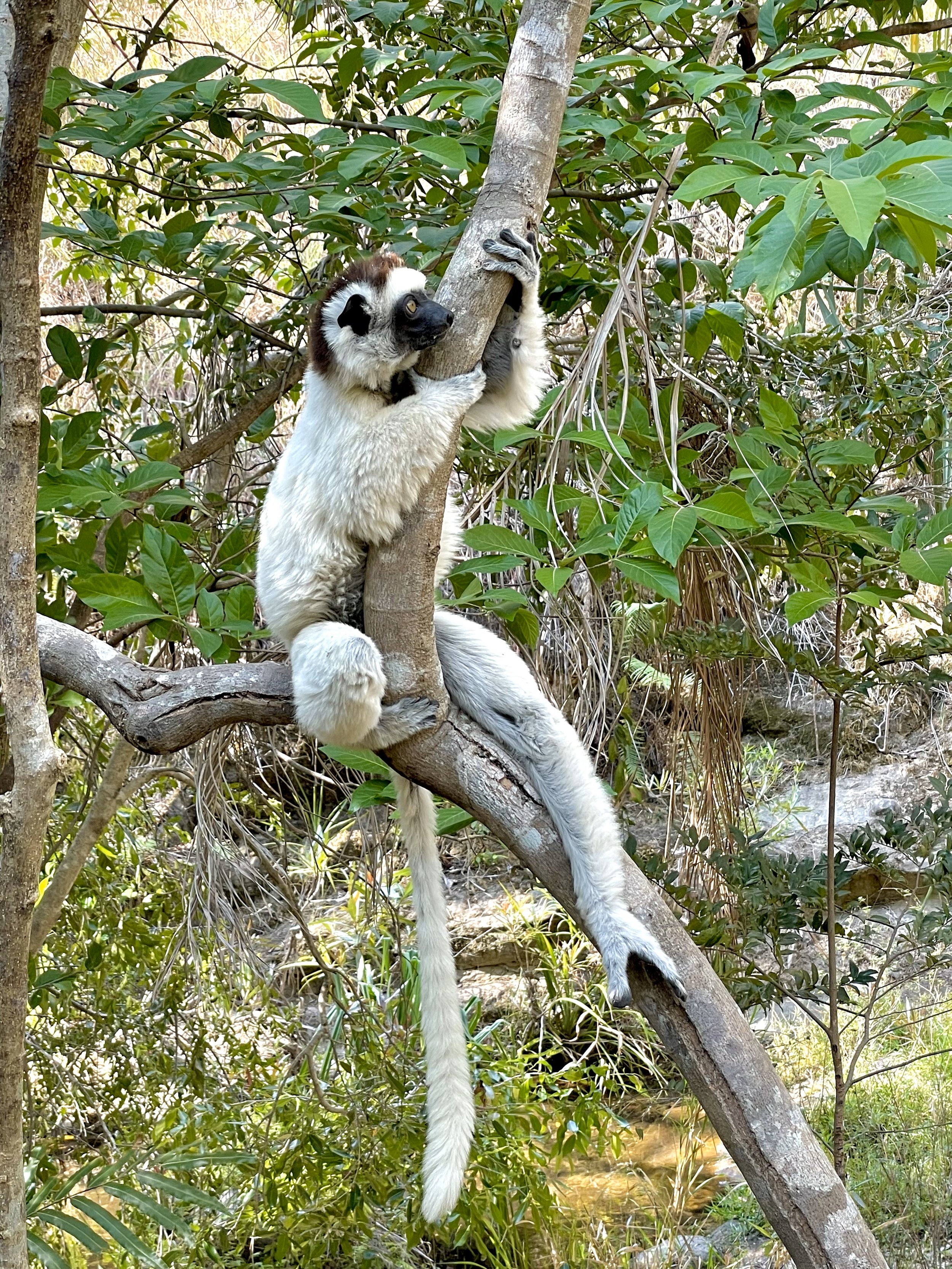
The amazing Sifaka lemur with its hilarious dancing walk
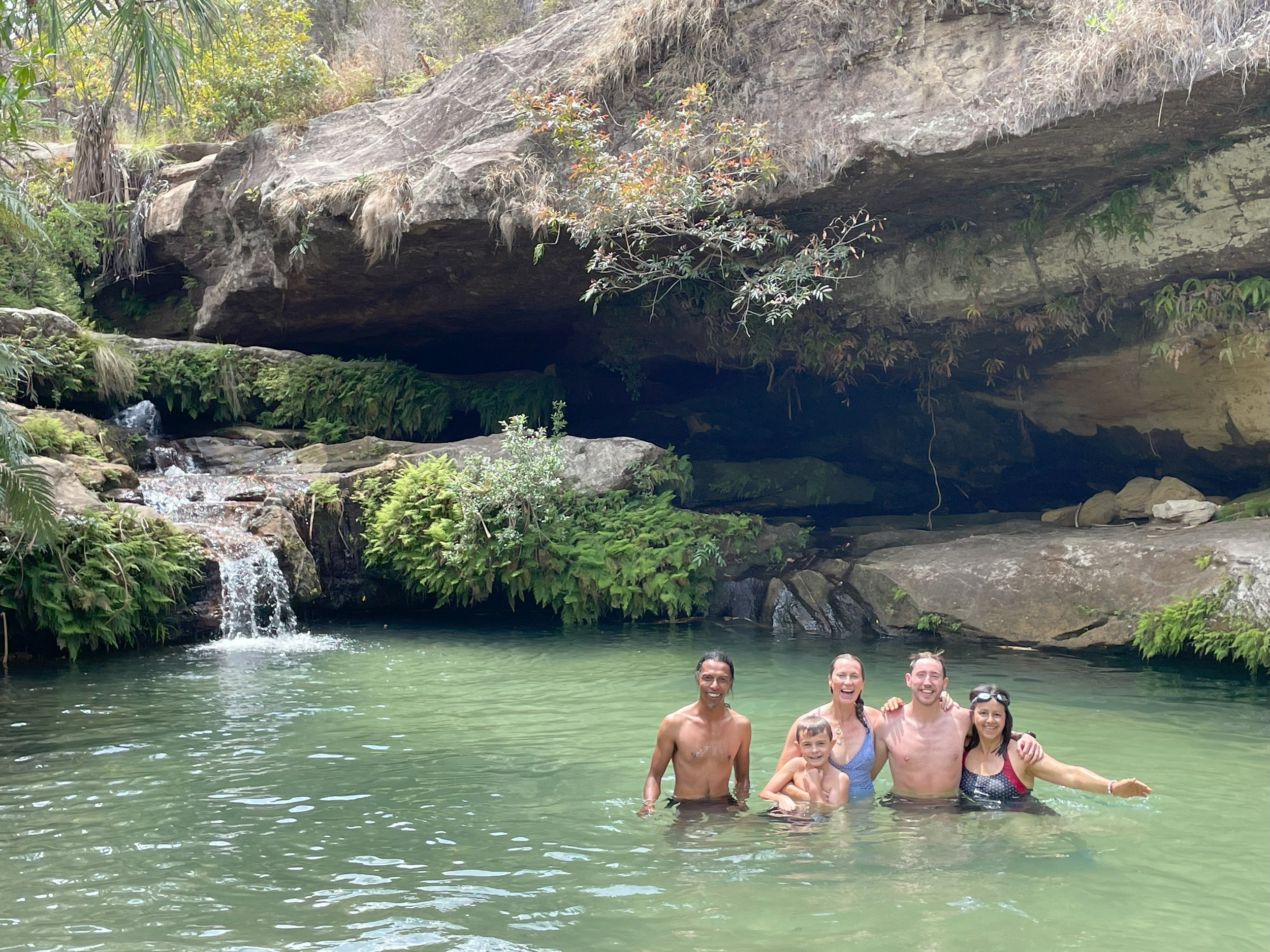
Our good friend Orfa has joined us for 2 months. Here she is soaking up the cool water in Isalo National Park. Unfortunately, Eric and Grace were at home this day with our soon-to-be-well-known "tummy troubles"!
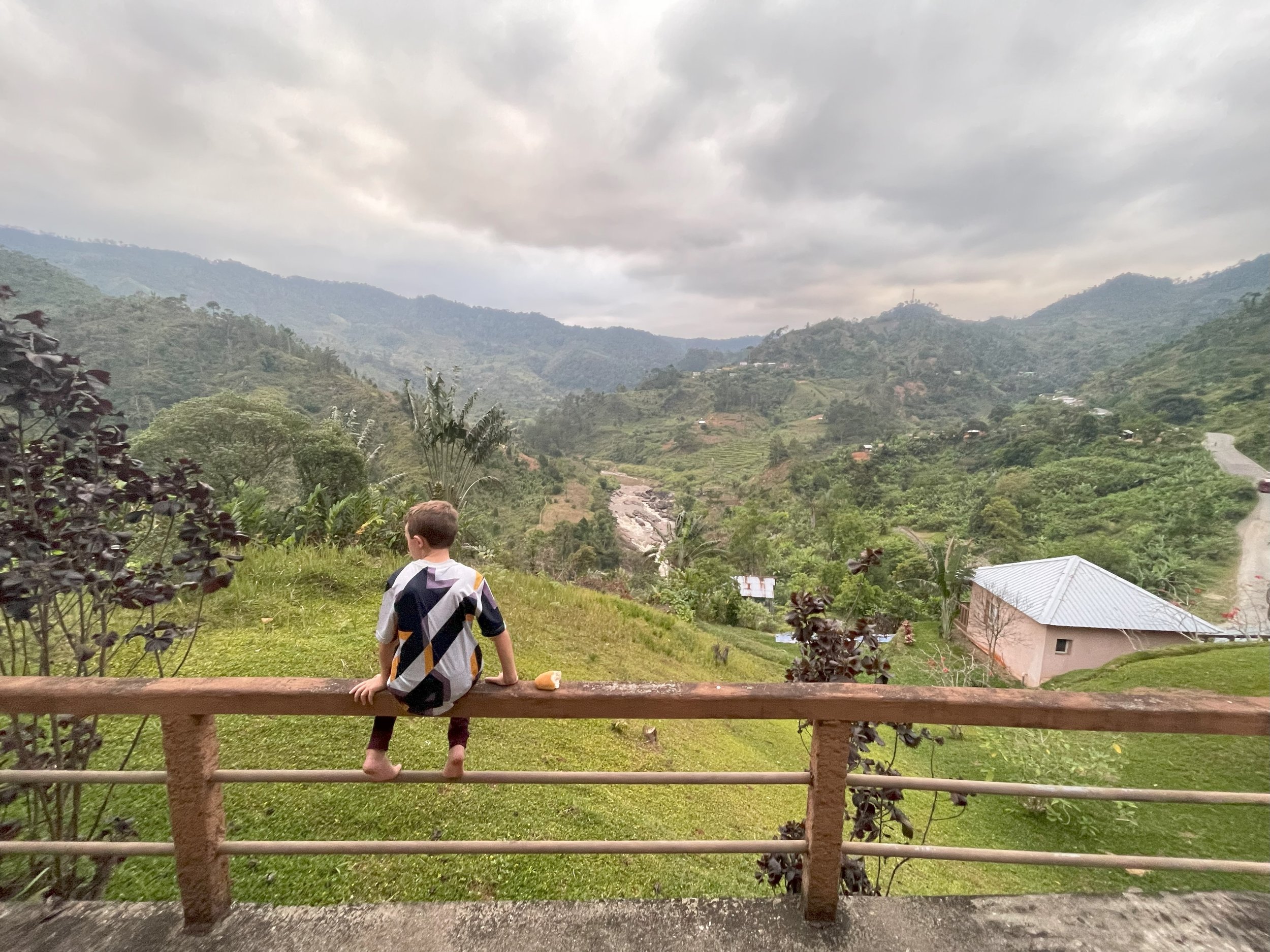
William looking out with Ranomafana National Park in the distance.
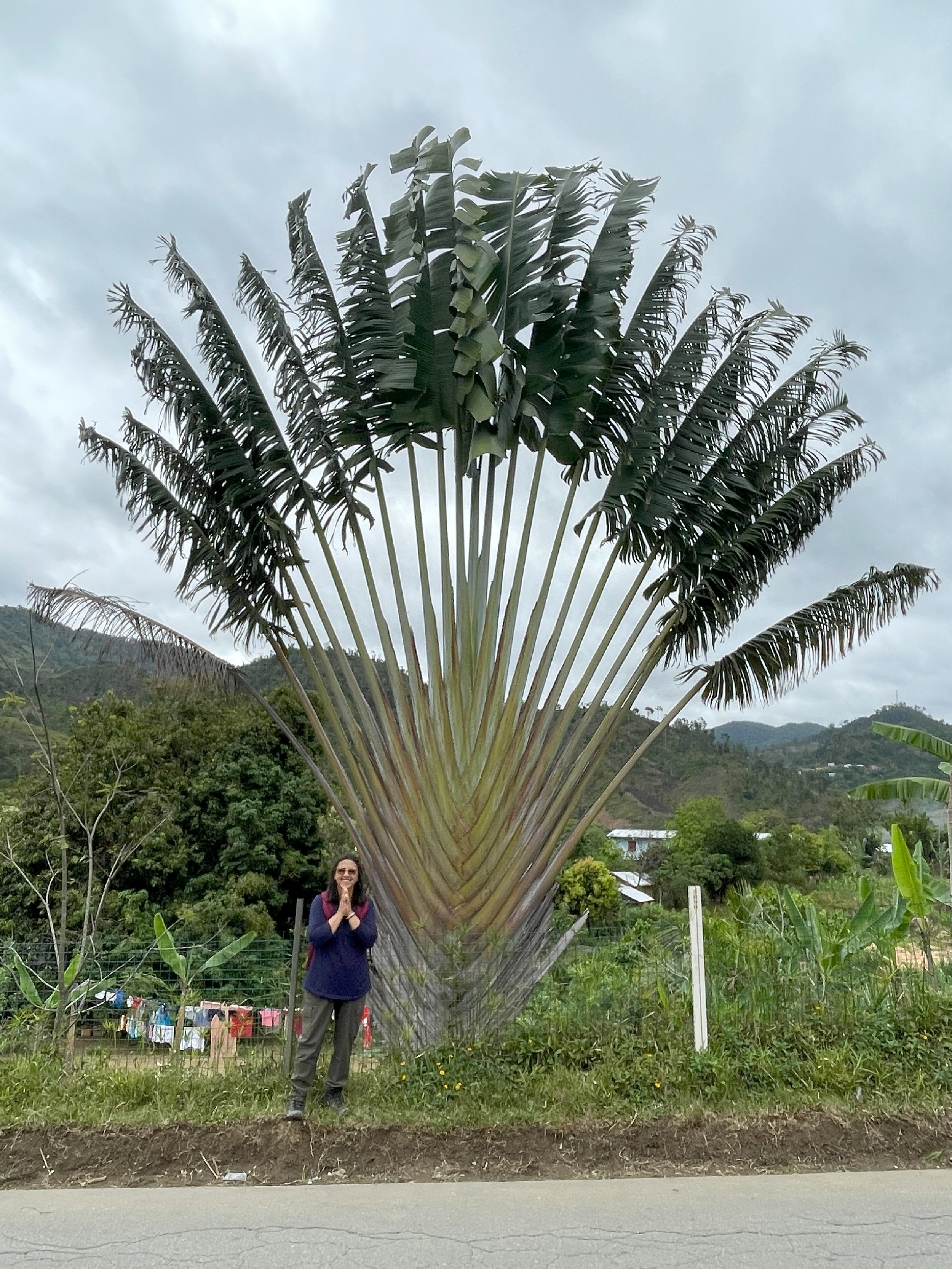
The iconic Revanala or Travellers Palm
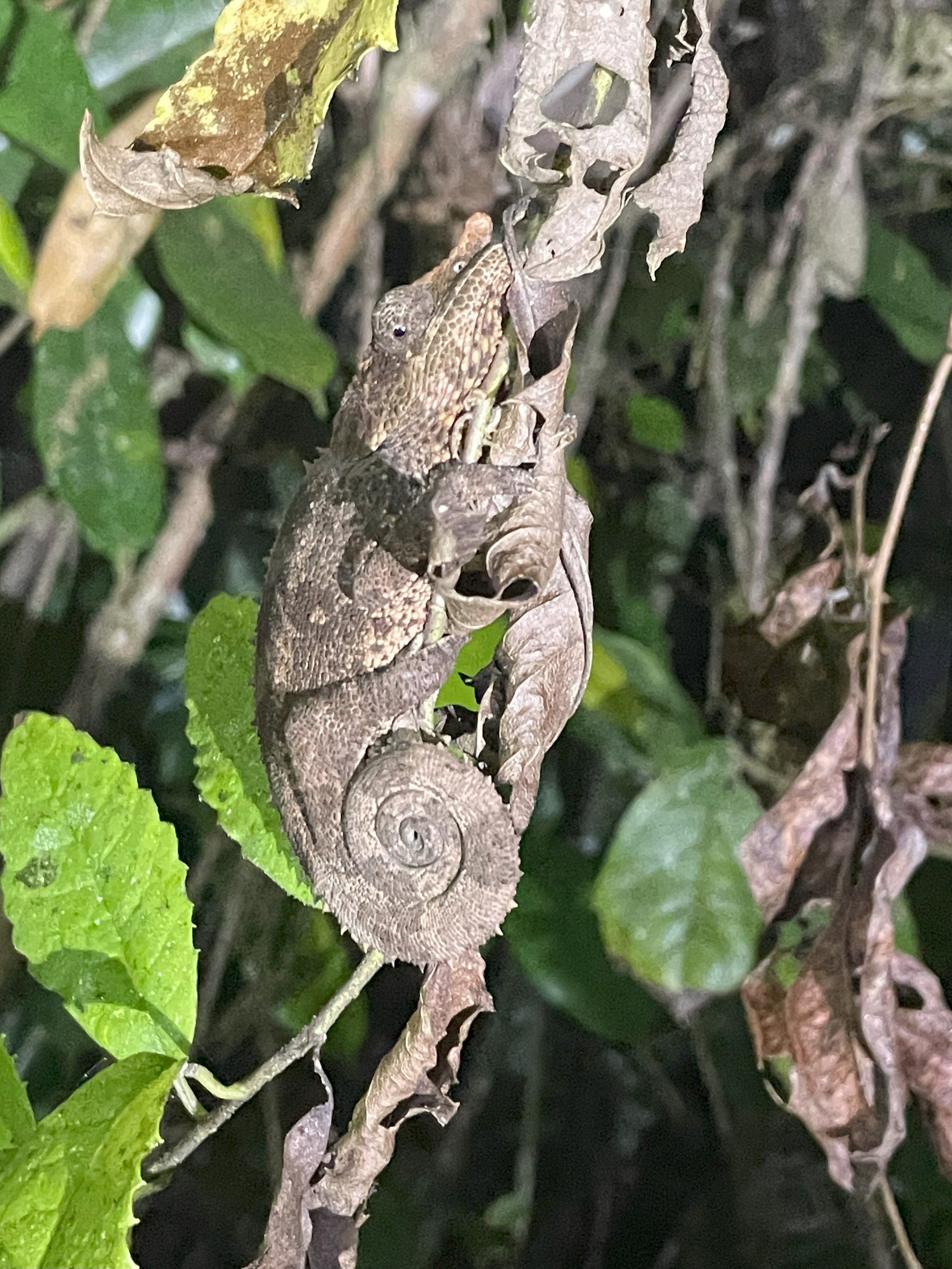
During the night, all sort of new animal came out including loads of chameleons and the adorable Mouse Lemur.
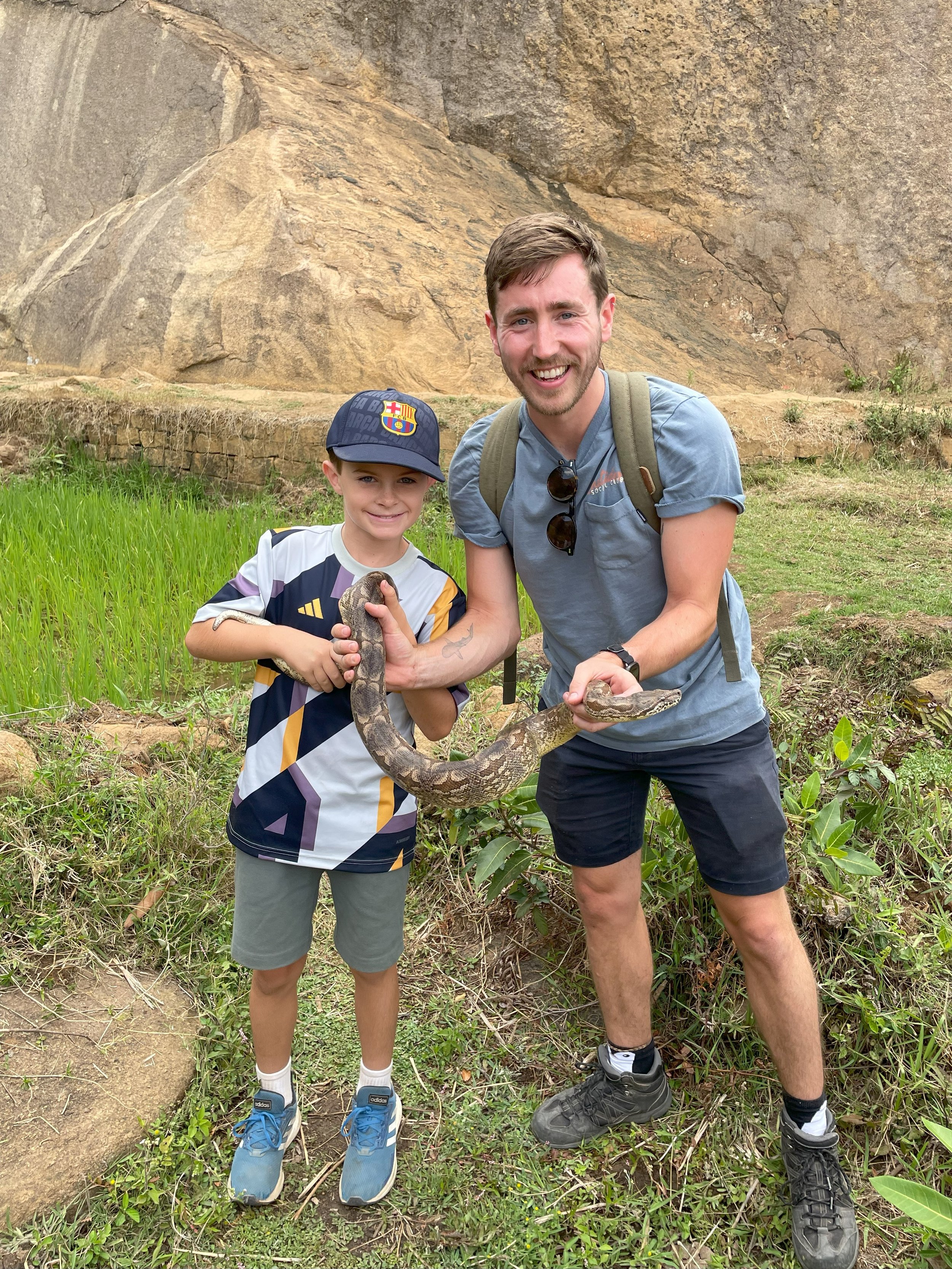
Our good friend Jack joined us for the trip and was constantly off in the forest seeking out the animals that our guides had missed. In this case, he had no qualms scooping us this large boa.

The Satanic Leaf-Tailed Gecko
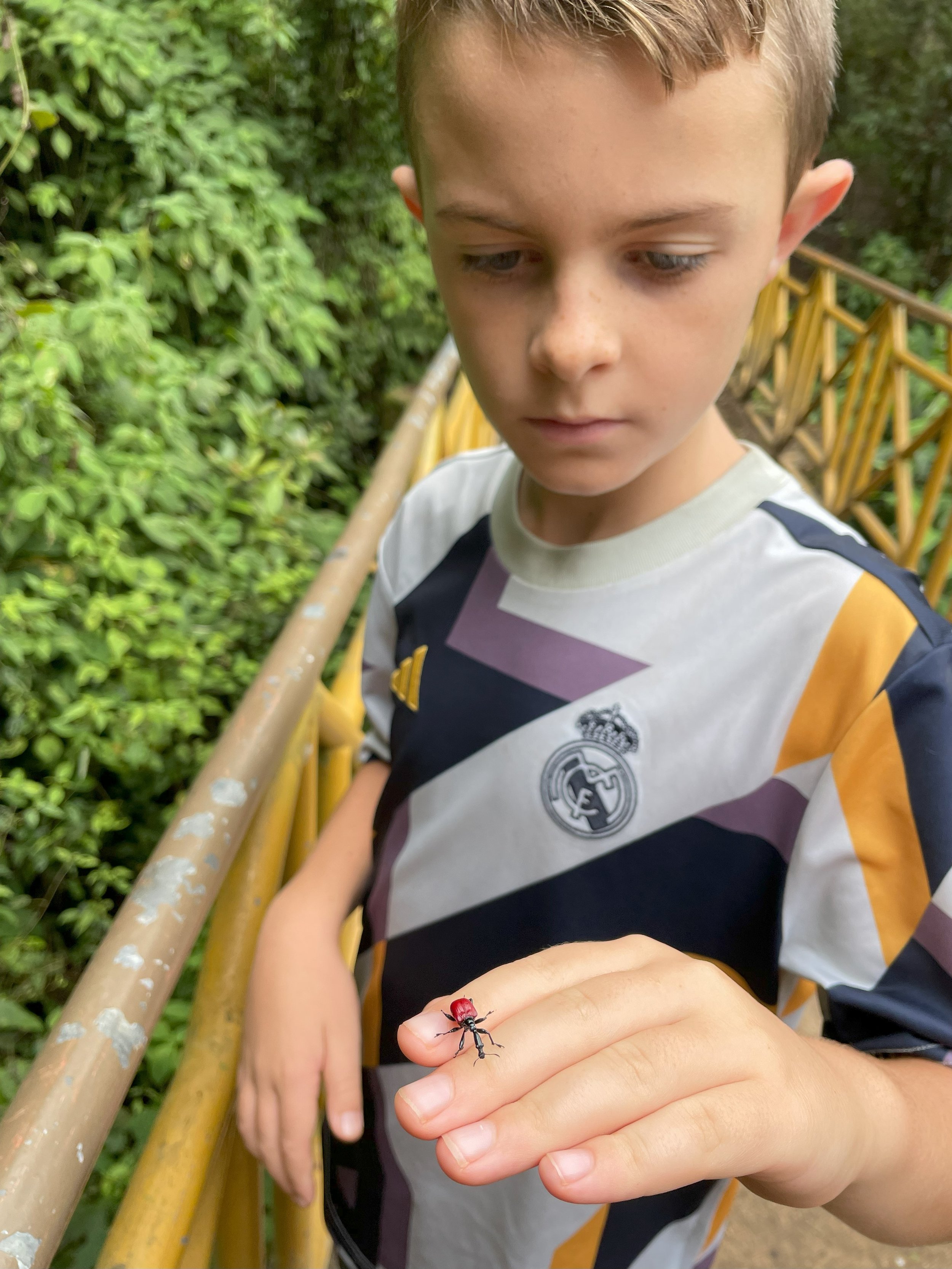
The Giraffe-Necked Beetle
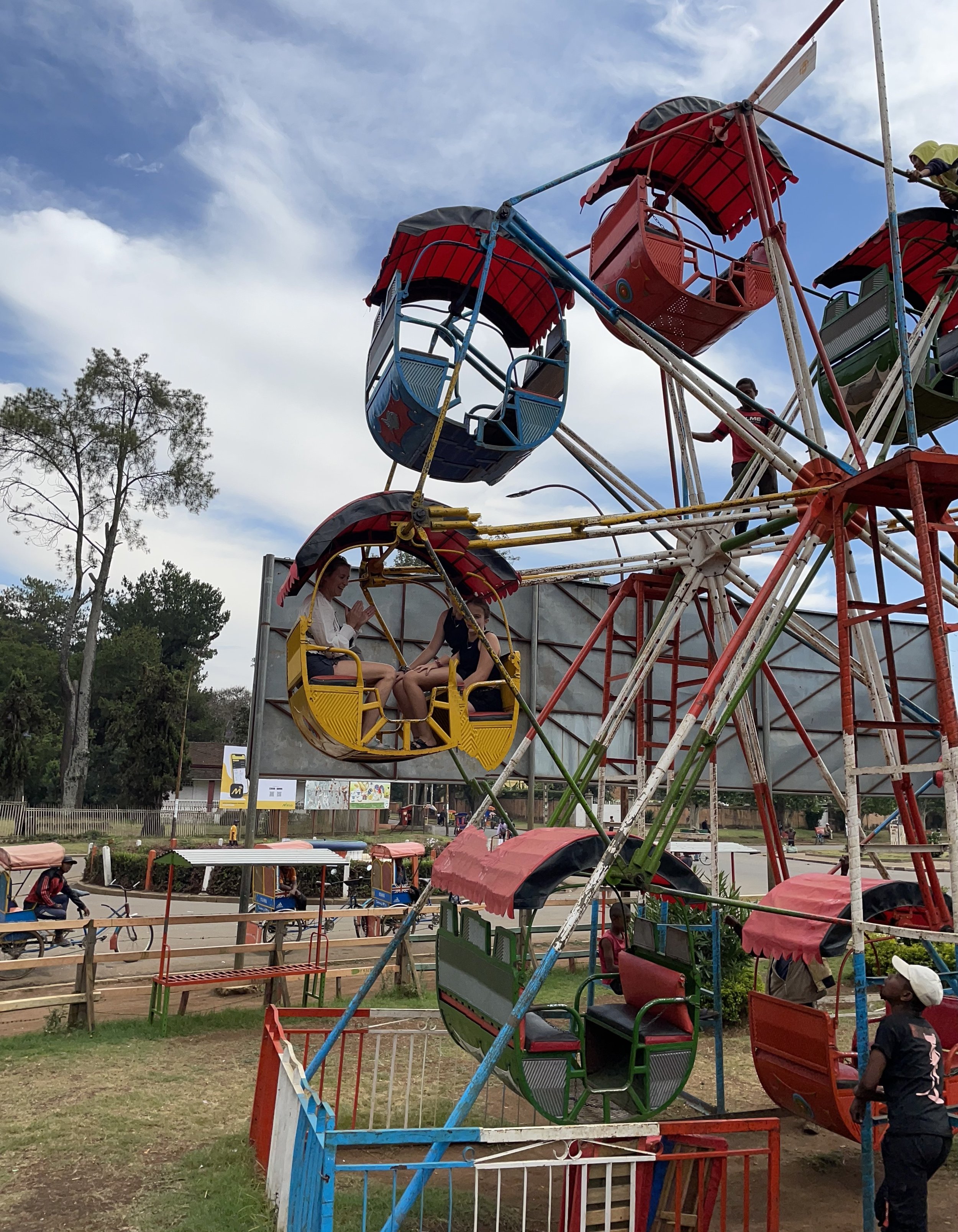
In Antsirabe, we got to experience our first-ever human-powered ferris wheel. You can see one of the two people perched on the top right. They would swing from bar to bar to get the ferris wheel moving and bring it to a stop.
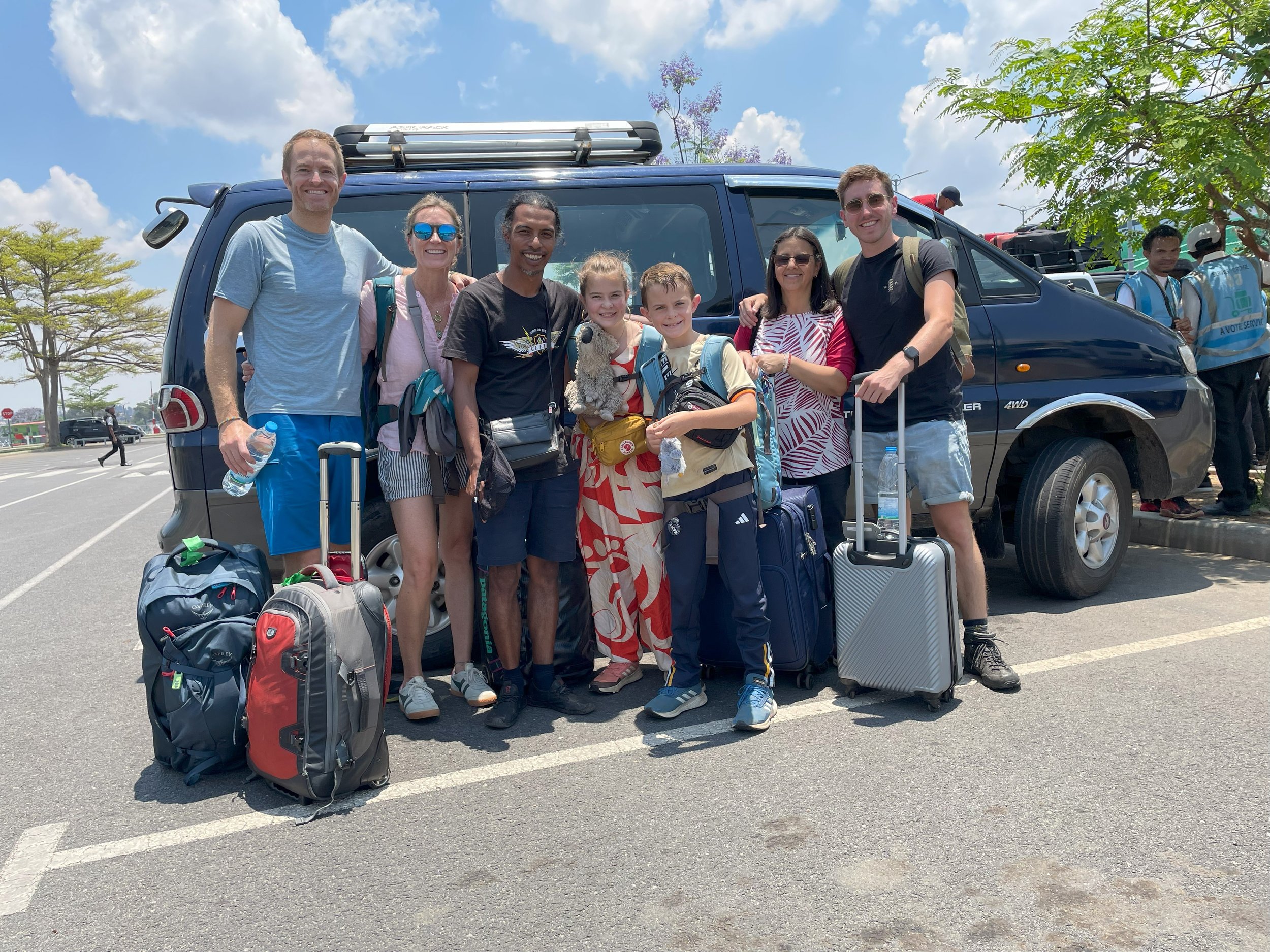
At the airport saying goodbye to our guide and new friend Nicko. If you are interested in travelling Madagascar, we recommend him.

There we were, face-to-face with a real wildlife veterinarian from Madagascar. Finally, we had our chance to ask him thee question: “What is your favorite animal?”
Madagascar is home to 150,000 endemic animal species. There are only a handful of people on this planet who get to care for them in their native land. Naturally, we were expecting the veterinarian’s answer to be something impressive and exotic, like the elusive long fingered aye-aye or the predacious fossa.
The much-anticipated response?
A duck.
Wait. What?
Apparently, ducks offer top notch security. And they are cheap. In this country, the need for security trumps all. According to the reputable veterinarian, if an armed burglar comes banging on your gate, not to worry… your vicious pet duck will honk them away. We were as much disappointed in his pragmatic answer as we were acutely reminded of the constant safety threat that permeated our experience in Madagascar.
Maybe we shouldn’t have been so surprised. Just a few hours earlier, William had passed a holster to Eric in the back seat of the car that was transporting us from the local airport. Once Eric concluded they were in fact not being abducted, he introduced the world-schooling conversation that has lasted months: how poverty fuels crime. And in Madagascar, for this reason, it was only natural that a gun would be blocking a seatbelt buckle.
Then there was the unsettling evening when our driver told us he was someone else entirely. He had ostensibly been “Fanu” to us for two days, as promised by our booking agency. But the real Fanu was running his own scheme. Fanu collects his heavy paycheck from the agency, leads them to believe he will be driving the unsuspecting clients all week, but ultimately sends one of his many subcontractors instead, who he pays in “gaining experience” in lieu of actual currency. This is how we came to know and, yes, after many sleepless nights, eventually forgive and trust, our beloved driver, Nicko.
Always with a smile that didn’t seem to match the scene, Nicko would inform us (our family and two of our dear travel friends, Orfa and Jack) when it was required to hide our phones and roll up all windows “for safety”. Then he’d happily announce when we’d arrived in a secure and vibrant village. He’d encourage us to walk around, explore, and try the local food. He’d start and end each of these transitions with an enigmatic “it’s okay. It’s okay.” We never quite figured out if “it’s okay” was a question or a statement. This simple phrase, equal parts comical and unnerving, became one of the many threads that wove the fabric of our Malagasy adventure.
While volunteering at a lemur rescue center, Grace was asked if she wanted to take over the veterinarian duties on his day off. She was more than up for the challenge! She navigated her way through the rudimentary clinic, slipping on her x-small gloves, finding the right ointment and calmly talking to the restrained lemur as she treated its alopecia. Meanwhile, William was outside playing soccer with local village children. They were united by their universal love of the game and the red sand that covered their black and white bare feet. They made soccer goals out of shoes and played “lemur in the middle”. By the time we left the rescue center, William had gifted a new soccer ball to his village friends.
Although the vast and ubiquitous plant and animal species we encountered far exceeded our wildest dreams, they existed only in pockets of nationally protected land. These pockets were small polka-dots of hope separated by hundreds upon hundreds of kilometers of burning earth. Decades of casting a match to the earth for charcoal production, to regenerate grass for zubu (cow) grazing, and simply as a way to pass the time, has left this country in deforested devastation. It was through this very armageddon that we would commute 4-9 hours each day in a sauna-van to arrive at rudimentary accommodations near a natural haven teeming with wildlife. Mothers would knock on our windows and beg for money. Children, the same age as Grace and William, would run alongside the van and plea for bottles of water. We were as gutted by the pervasiveness of poverty and deforestation as we were exhausted by the pace of travel and awe-struck by the wildlife we were lucky to encounter.
The entire experience of travelling through Madagascar was one of deep extremes, to say the least, and our hearts were forced to grow in order to contain it all. And in the end, despite not having a protective duck in tow, we left Madagascar physically unscathed.


